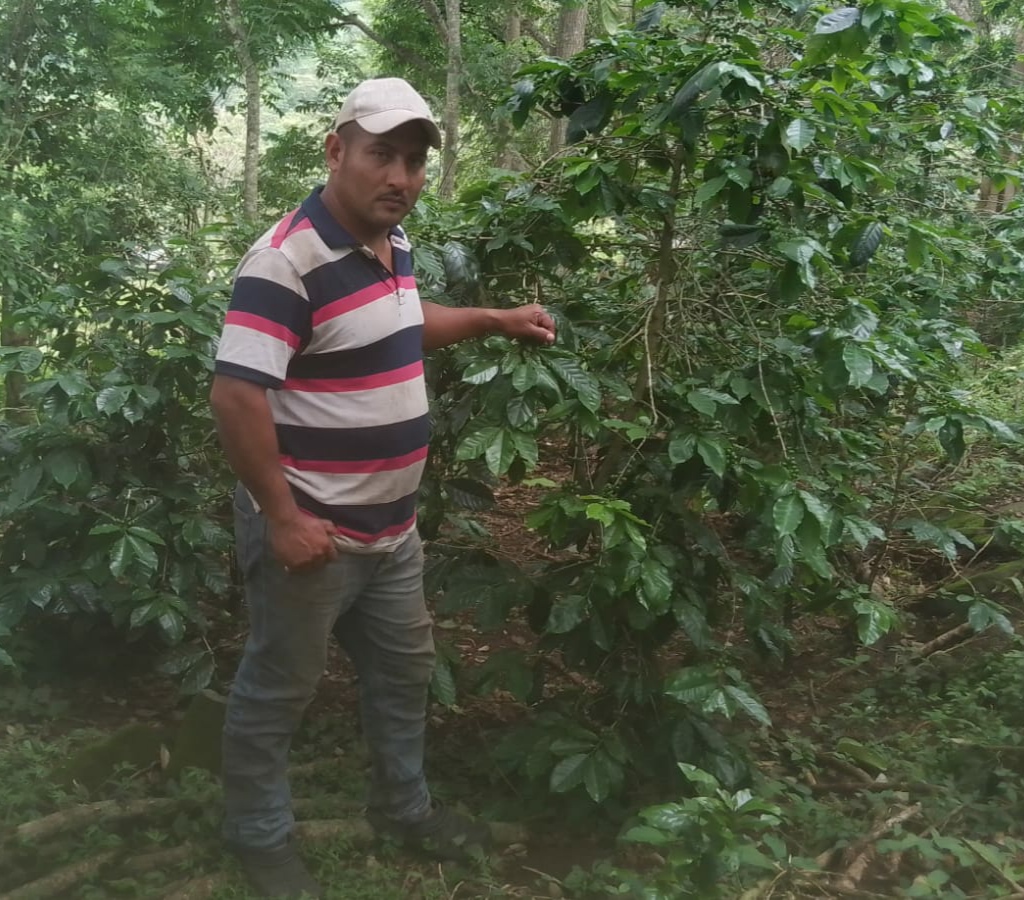
Environmentally-Friendly Farming “Inheritance”
Edén has been a farmer since he was 16, but he only planted basic grains, and just for household consumption. Now he’s got a diversified farm, he’s improving his soils, he’s making money, and has discovered he has a knack for growing coffee.
Earlier this year he began participating in group meetings, workshops, and practical sessions of his community’s hands-on Farmer Field School led by local partner CIEETS. He says that this has allowed him to acquire new knowledge for the management of his own fields, and in particular for his favorite crop, coffee.
At the Farmer Field School, Edén created a diversified demonstration plot of a little over half an acre to practice on, planting a variety of grains, vegetables and coffee. At home, he’s put his new knowledge to good use, controlling erosion and identifying the best soils and areas of his field where different crops will thrive. He’s also learned how distinguish the coffee varieties that can be adapted to his land and detect coffee diseases and control them. He’s even identified types of fruit trees that can provide shade to his coffee, as well as food and income for his family.
Edén says what he’s learned at the community Farmer Field School is significant because it has allowed him to work his land without depleting the soil. “I will no longer make the mistakes that have harmed my lands and crops, because now I know how to do it right.”
He’s grateful to the program for providing the Farmer Field School learning spaces, saying they’re important for him and other farmers in the community. Not only is he sharing what he learns with his neighbors, he’s passing along his knowledge to his wife and three children.
“Knowing how to farm while protecting the land is so important, I’m calling it their ‘inheritance,’” he says earnestly.
Nicaragua Matagalpa Program
Led by World Renew and Local Partner CIEETS
